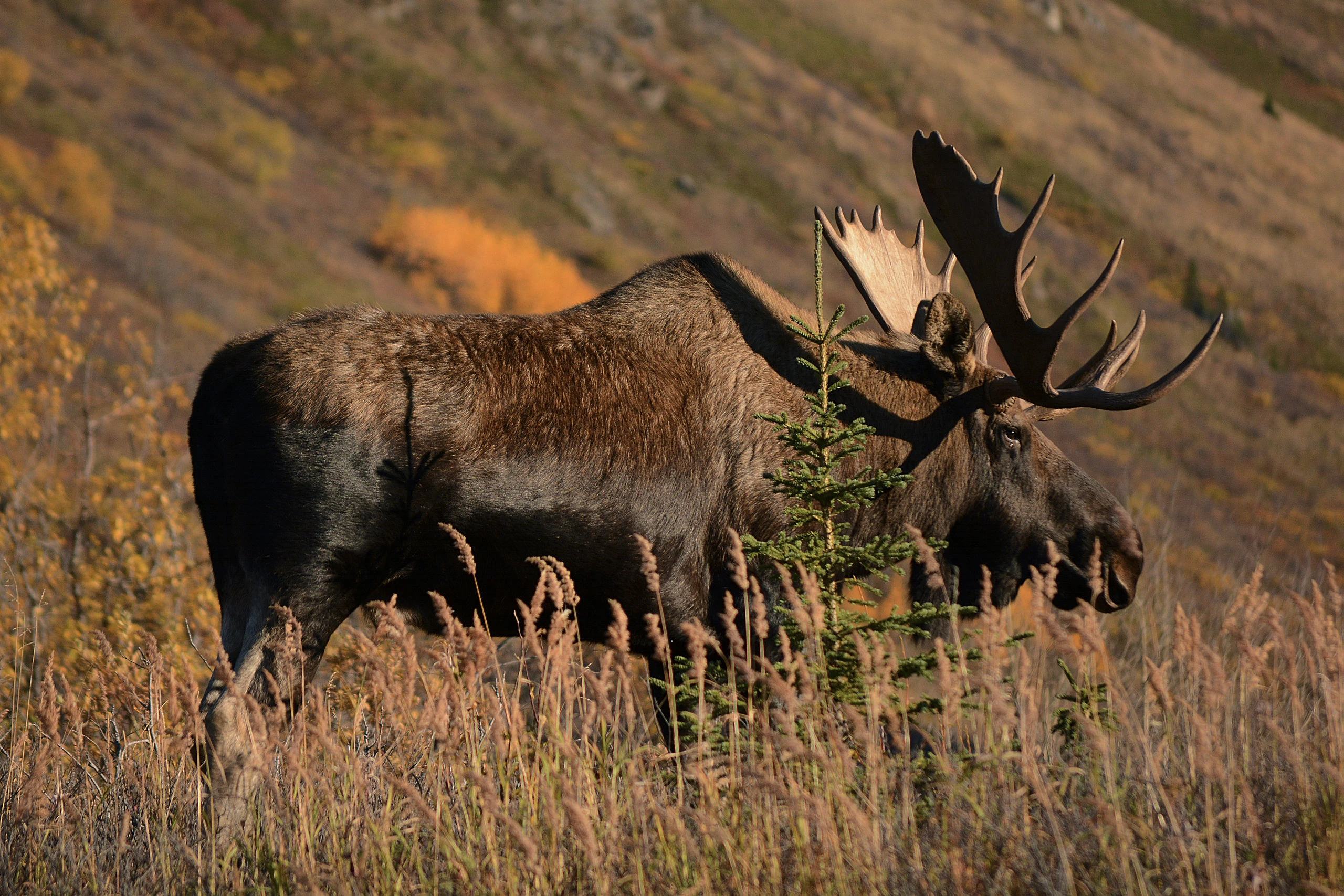
What’s the plural of “moose”?
Have you ever seen a moose? What about two … mooses? Meese? What’s the plural of moose, anyway? Make no moose-take, and read this article to make sure you know your English plural noun forms. The takeaway on the plural of moose is:
The plural of moose, (or alces alces, in Latin), is commonly mistaken as meese, or mooses. It’s an understandable mistake, but one you can avoid.
- The plural of moose is moose, without the “s” at the end.
- Mooses and meese are incorrect, and are not recognized words in English.
| Sentences with “moose” | |
| singular | We were fortunate to see a solitary moose during our canoe trip. |
| plural | This area is home to plenty of elk, deer and moose. |
The history of the word “moose”
English is a consistently inconsistent language, but at least there are reasons for the inconsistency. Most words in English have varied origins and histories, and some were introduced to Modern English much earlier or later than others.
Nouns like goose, tooth and feet date back much earlier than the moose, and are etymologically dissimilar. Goose, tooth, foot and many other nouns in English come from the Germanic languages, which used a form of pluralization known as the Germanic umlaut (also called i-mutation or i-umlaut). The I-umlaut is what we see with the swapping of double ‘o’s from a singular with ‘e’s as a plural with words like goose, tooth and foot.
Moose, however, is a ‘loanword‘ in English, which are words that have been borrowed or introduced from other languages and cultures (think cafe from French, or taco from Spanish) that have been adopted into English.
Moose was introduced into English in 1606 from the Algonquian languages (specifically the Innu people of Quebec, Canada), “moos”, meaning “stripper and eater of bark”.
So the lesson is this: when in doubt, look to language of origin. The other lesson is that goose, tooth and foot are all German words and use the I-mutation (the swapping of inner vowels to add meaning or count), which is a German linguistic thing that Modern English inherited. Moose, also inherited (or a ‘loanword’), but from a different culture, with their own set of linguistic rules and conventions.
No-change nouns (nouns that only use a singular form)
| Singular | Plural |
|---|---|
| sheep | sheep |
| moose | moose |
| fish | fish (sometimes fishes) |
| elk | elk |
Moose, in sentences (singular & plural)
| Noun: moose | Example sentences |
|---|---|
| moose (plural) |
A herd of moose emerged from the woods. Expect to spot bison, elk, deer, moose, coyote and many winter birds during your ski. Other wildlife one can encounter in the winter includes moose, deer, fox and otter. He set off for a nineteen-day moose hunt in Nova Scotia. |
| moose (singular) |
I’ve never seen a moose with such big antlers! I came upon a moose with her calf while walking in the forest. There’s an aggressive moose that regularly visits my house. The bull moose was on the loose. |
What’s the singular of “moose”?
A moose. The singular and plural of moose are the same; both are moose. Moose is irregular since it stays the same singular and plural, and does not add an -s is to denote its plural form. In cases where a singular and plural noun form are identical, we can typically indicate count from the sentence context.
What do you call a male and female moose?
- Male are bull moose; females are cow moose.
- A young moose is a calf.
- The collective noun term for moose is “a herd“. E.g., “I could see a herd of moose grazing the fields yonder“.
Quotes with moose from the media and literature
Seminars include: calling for moose, turkey, goose , and deer; arrow-making;..and black-powder basics.
Her flatmate (who sadly was a complete moose) bandaged me up and called the Ambulance.
We were treated to a traditional Southern Tutchone barbecue of salmon, moose, wild rice and campfire tea.
A moose is dull and has no imagination, although its hearing is particularly keen.
Origin of moose
Moose derives from the Algonquian languages, most likely the Narragansett (present day Rhose Island), moos, meaning ‘stripper and eater of bark,’ since moose eat bark during the winter, and are herbivores.
Practice: No-change nouns
What is the correct plural form of “moose”?
According to the blog post, which form is considered incorrect for the plural of “moose”?
The word “moose” was introduced into English as a loanword from which group of languages?
Words like “goose” and “tooth” form their plurals differently than “moose” because they originated from words that used which linguistic process?
Which sentence correctly uses the plural form of “moose” according to the post?
We were fortunate to see many in the park today.
The area is home to plenty of elk, deer, and .
Some people mistakenly say the plural of moose is .
The plural form “” is incorrect and not a recognized word in English.
Unlike words that use the Germanic umlaut, “moose” is a from another language.
FAQs
What is the correct plural of moose?
+
Is “mooses” the plural of moose?
+
Is “meese” the plural form of moose?
+
How do I use “moose” in plural?
+
Why is moose plural not like “geese”?
+
Yash, D. "How to Use Moose Plural (Explained, Examples & Worksheet)." Grammarflex, Sep 7, 2025, https://grammarflex.com/moose-plural/.








